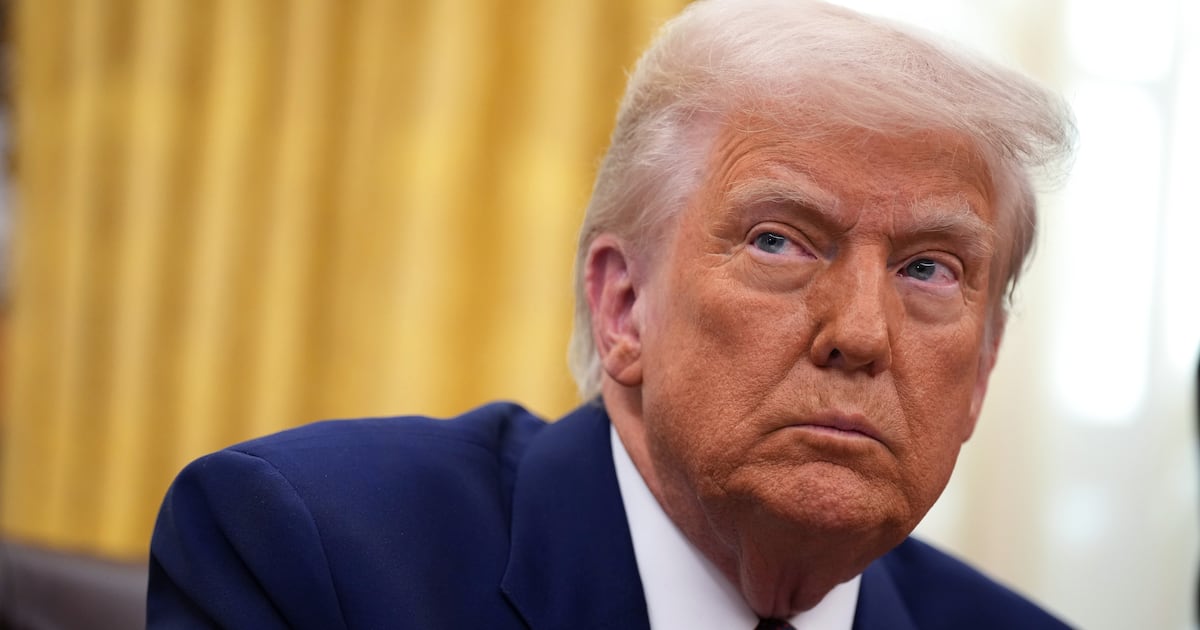Walter Cunningham, a retired astronaut who served as a pilot on the first successful crewed mission in NASA’s Apollo program, died in Houston on Tuesday, the space agency confirmed. He was 90 years old.
A cause of death was not shared in NASA’s statement, but a family spokesperson told the Associated Press that Cunningham died “from complications of a fall, after a full and complete life.”
“We would like to express our immense pride in the life that he lived, and our deep gratitude for the man that he was—a patriot, an explorer, pilot, astronaut, husband, brother, and father,” the Cunningham family said in a statement. “The world has lost another true hero, and we will miss him dearly.”
A member of NASA’s third astronaut class in 1963, Cunningham ended up going into space just once, but it was his spaceflight in October 1968 that revived the Apollo program and paved the way for NASA to land a man on the moon less than a year later.
In low-Earth orbit over 11 days, he and his crew mates, Walter Schirra and Donn Eisele, also transmitted the first live television broadcast aboard a crewed U.S. spacecraft. After their first seven-minute broadcast, the trio “became well-known for their daily 10-minute television shows from orbit, during which they clowned around, held up humorous signs and generally educated television viewers back on earth about space flight,” according to a New York Times story from 1987. They won a special Emmy for the broadcasts after successfully splashing down in the Atlantic Ocean.
The Apollo 7 mission came just over 20 months after the cabin fire that killed three astronauts during a launch rehearsal test for Apollo 1, intended to have been the first crewed mission of the program. The disaster would have been at the forefront of the astronauts’ minds, but the success of their mission bolstered the shattered confidence of the agency, which sent Apollo 8 to orbit the moon that December.
Cunningham was designated the lunar module pilot, despite the fact that Apollo 7 carried no lunar module. “It turns out we didn’t get the lunar module in time,” Cunningham told The Spokesman-Review last August. “But I was still listed as lunar module pilot. But essentially what was going on is, on board all of us were experts in one way or another on the spacecraft.”
The mission’s main objectives involved extensively testing the capabilities of the command and service modules. “We fixed a lot of things and were able to fly a much better spacecraft…” Cunningham told NASA in a 1999 interview for an oral history project. “The one that we flew was almost perfect! I mean, it was just—you couldn’t have asked for a better piece of hardware for the first time.”

The three American cosmonauts Donn Eisele, Walter Cunningham and Walter Schirra photographed in front of the ‘Apollo 7,’ in the United States, on October 11, 1968.
Keystone-France/Gamma-Rapho via Getty ImagesBut in the midst of testing, he was also dragged into escalating tensions between the crew and mission control, as Schirra—the mission commander—warred with Houston over the weather during launch, the food aboard the craft, the cumbersome spacesuits, and whether helmets should be worn during reentry. (To make things worse, Schirra was also afflicted by the first head cold in orbit.)
After they were required to perform one particularly infuriating test, Eisele showed his frustrations, too, according to the historians Francis French and Colin Burgess, radioing furiously down to mission control, “We didn’t get a damn thing, in fact... you bet your ass... as far as we’re concerned, somebody down there screwed up royally when he laid that one on us.”
Cunningham maintained to The Spokesman-Review that the story of a near-mutinous space crew was exaggerated by the press. “We never thought about it as bad as the ground did,” he said. “From our perspective on board, we felt like we had a hell of a good time.”
But possibly because of the conflict, Cunningham was never sent back up again. “I was a bit disappointed,” he said, noting that he’d briefly been assigned to command another mission before its cancellation.
Born “the poorest person ever” in Creston, Iowa in 1932, as Cunningham recalled, one of his earliest childhood dreams was to become a Navy pilot. He enlisted in 1951, and flew 54 night missions in Korea with the U.S. Marine Corps. After his active duty, Cunningham went on to earn a masters degree in physics from the University of California in Los Angeles.
“All I remember is just kind of keeping my nose to the grindstone and wanting to do the best I could as—I didn’t realize at the time, but that was because I always wanted to be better prepared for the next step,” Cunningham explained in the oral history interview. “I’ve always been looking to the future.”
Despite his work in the scientific realm, Cunningham would later become known for challenging mainstream consensus on climate change, denying that human activity greatly contributes to the warming of the planet.
Following Apollo 7, Cunningham rose to serve as the chief of NASA’s Skylab branch, Cunningham. He left the agency in 1971, becoming a businessman, venture capital investor, lecturer, and radio show host.
He is survived by his wife, Dot, his sister, Cathy Cunningham, and his two children, Brian and Kimberley, from a former marriage.






